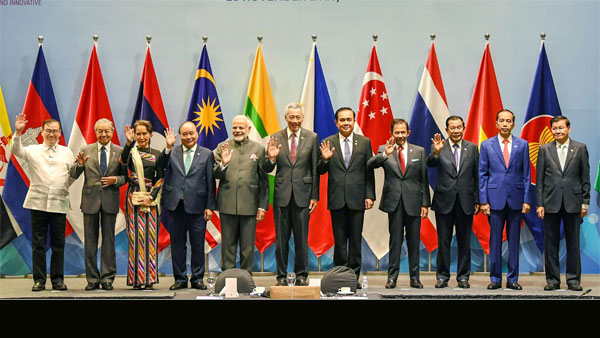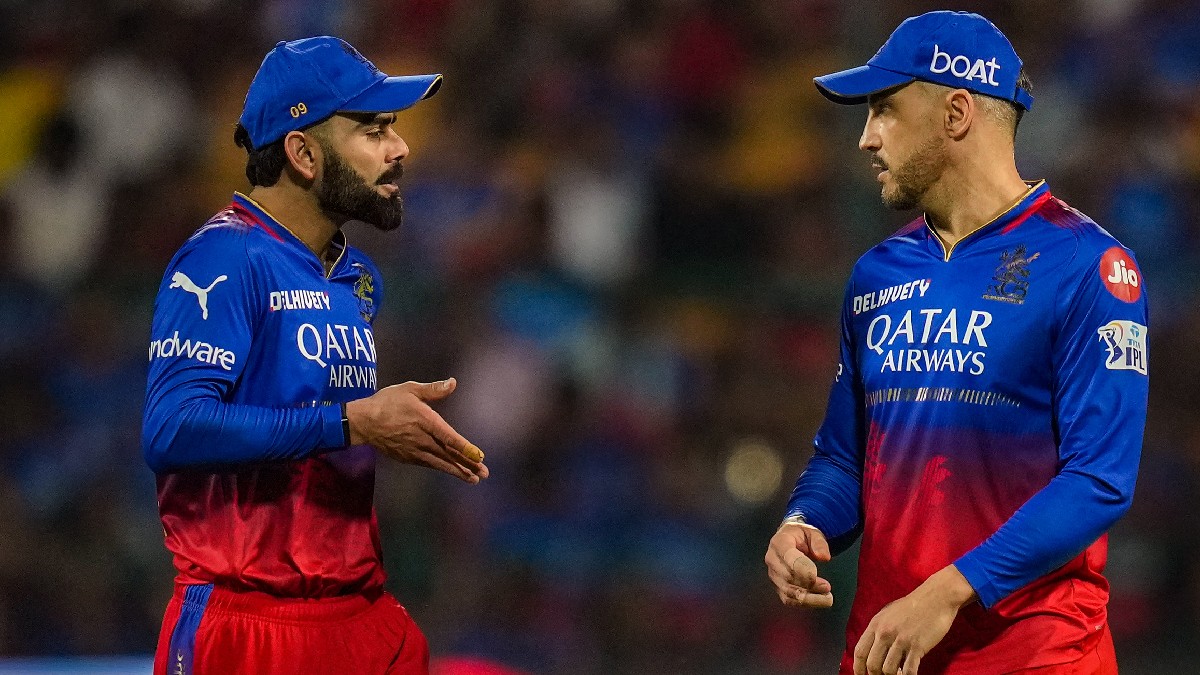
Is RCEP recipe good for India?
New Delhi, June 22: The Association of Southeast Asian Nations (ASEAN) has called a special meeting today in Bangkok to focus on pushing forward the Regional Comprehensive Economic Partnership (RCEP) with the aim of reaching an agreement by the end of this year.
The RCEP is a proposed free trade agreement (FTA) between the ten member states of the Association of Southeast Asian Nations (ASEAN)- Brunei, Cambodia, Indonesia, Laos, Malaysia, Myanmar, the Philippines, Singapore, Thailand, Vietnam- and the six Asia-Pacific nations- Australia, China, India, Japan, South Korea, and New Zealand- with which ASEAN has existing free trade agreements.

The RCEP was introduced during the 19th ASEAN Summit held between 14-19 November, 2011.
RCEP negotiations were formally launched in November 2012 at the ASEAN Summit in Cambodia.
The RCEP framework would cover about 50% of the world's population and 30% of total trade.
However, the negotiations are still not finalised because some countries, such as India, remain cautious about opening up their economies and cutting import tariffs.
Australia and New Zealand are pushing for "high quality" environmental and labour protections.
India is also seeking guarantees the deal will not force its market open to duty-free goods from its main economic rival China through Southeast Asia.
According to experts, the urgency to finalise the RCEP pact has increased due to the trade war between the US and China.

US President Donald Trump has imposed tariffs of $200 billion on Chinese goods and China has hit back with levies on $60 billion on American imports.
The U.S.-China trade war has led to a fall in ASEAN exports, prompting to work out a way to boost economic activity.
However, the ASEAN countries have seen a ray of hope as the U.S. has also removed India out of its list of Generalized System of Preference, which means that nearly 2,000 products from the country, including auto components and textile materials, will be subject to higher tax when they enter the U.S. market.
The experts also say that China is proposing a new Asian free trade agreement that excludes India, which will thwart the RCEP plans. Beijing's irritation with the "free and open Indo-Pacific" initiative pushed by Japan and the U.S. also appears to be behind its move.
When senior economic officials from ASEAN, China, Japan, and South Korea met in April, Beijing proposed forming a 13-member partnership. A blueprint for the plan it presented at the meeting explicitly stated the creation of a free trade agreement as a possibility.
Japan and several of the Southeast Asian countries immediately opposed the idea, which resembled the RCEP trade deal -- minus India, Australia, and New Zealand. China appears to be trying to pressure India and Australia, which are working with Japan and the U.S. on their initiative for a "Free and Open Indo-Pacific."
The Southeast Asian bloc plans to prioritize talks about RCEP on Saturday, and is not expected to discuss China's 13-country plan. But support for the idea could grow, particularly among pro-Beijing members of ASEAN like Cambodia and Laos.
Who are in India opposing?
In a meeting convened by Ministry of Commerce on Friday to discus RECP on Steel sector, the Confederation of All India Traders (CAIT) while submitting a memorandum called for India not to sign the RECP as it will adversely affect steel trade & Industry in the Country. Commerce Minister Piyush Goyal attended the meeting.
The CAIT Secretary General Praveen Khandelwal says that RCEP agreement will run against the interests of domestic manufacturing and trade and will also hit the economy to an extent.
"The larger free trade agreement would enable the RCEP Countries especially South Korea and China to flood their goods in the Indian market with relatively little advantage on the export front and due therefore a cautious approach is required in dealing with RCEP agreement. For India, issues of tariff rate (import duty) are as important as other areas under negotiations, mainly because India does not have trade agreements into effect with all countries involved in RCEP. It is most likely that RCEP could have a negative impact on sectors like steel, pharmaceuticals, e-commerce, food processing and several other sectors," says Khandelwal.
The Swadeshi Jagran Manch (SJM), the economic wing of the Rashtriya Swayamsevak Sangh, has also been opposing the deal as it believes that the pact could threaten India's manufacturing growth, make the survival of the small and micro enterprises sector difficult and increase trade deficit several-fold.
In a letter to the Prime Minister on November 14, 2018, SJM had stated that RCEP will widen the trade deficit India has with its biggest trade partner China.
In 2017-18, India exported goods worth $13.1 billion to China and imported goods worth $73.3 billion -creating a trade deficit of $63.1 billion. India has trade deficits with other RCEP nations, too, such as South Korea ($11.9 billion) and Australia ($10.2 billion).
New Delhi, June 22: The Association of Southeast Asian Nations (ASEAN) has called a special meeting today in Bangkok to focus on pushing forward the Regional Comprehensive Economic Partnership (RCEP) with the aim of reaching an agreement by the end of this year.
The RCEP is a proposed free trade agreement (FTA) between the ten member states of the Association of Southeast Asian Nations (ASEAN)- Brunei, Cambodia, Indonesia, Laos, Malaysia, Myanmar, the Philippines, Singapore, Thailand, Vietnam- and the six Asia-Pacific nations- Australia, China, India, Japan, South Korea, and New Zealand- with which ASEAN has existing free trade agreements.

The RCEP was introduced during the 19th ASEAN Summit held between 14-19 November, 2011.
RCEP negotiations were formally launched in November 2012 at the ASEAN Summit in Cambodia.
The RCEP framework would cover about 50% of the world's population and 30% of total trade.

However, the negotiations are still not finalised because some countries, such as India, remain cautious about opening up their economies and cutting import tariffs.
Australia and New Zealand are pushing for "high quality" environmental and labour protections.
India is also seeking guarantees the deal will not force its market open to duty-free goods from its main economic rival China through Southeast Asia.
According to experts, the urgency to finalise the RCEP pact has increased due to the trade war between the US and China.
US President Donald Trump has imposed tariffs of $200 billion on Chinese goods and China has hit back with levies on $60 billion on American imports.
The U.S.-China trade war has led to a fall in ASEAN exports, prompting to work out a way to boost economic activity.
However, the ASEAN countries have seen a ray of hope as the U.S. has also removed India out of its list of Generalized System of Preference, which means that nearly 2,000 products from the country, including auto components and textile materials, will be subject to higher tax when they enter the U.S. market.
The experts also say that China is proposing a new Asian free trade agreement that excludes India, which will thwart the RCEP plans. Beijing's irritation with the "free and open Indo-Pacific" initiative pushed by Japan and the U.S. also appears to be behind its move.
When senior economic officials from ASEAN, China, Japan, and South Korea met in April, Beijing proposed forming a 13-member partnership. A blueprint for the plan it presented at the meeting explicitly stated the creation of a free trade agreement as a possibility.
Japan and several of the Southeast Asian countries immediately opposed the idea, which resembled the RCEP trade deal -- minus India, Australia, and New Zealand. China appears to be trying to pressure India and Australia, which are working with Japan and the U.S. on their initiative for a "Free and Open Indo-Pacific."
The Southeast Asian bloc plans to prioritize talks about RCEP on Saturday, and is not expected to discuss China's 13-country plan. But support for the idea could grow, particularly among pro-Beijing members of ASEAN like Cambodia and Laos.
Who are in India opposing?
In a meeting convened by Ministry of Commerce on Friday to discus RECP on Steel sector, the Confederation of All India Traders (CAIT) while submitting a memorandum called for India not to sign the RECP as it will adversely affect steel trade & Industry in the Country. Commerce Minister Piyush Goyal attended the meeting.

The CAIT Secretary General Praveen Khandelwal says that RCEP agreement will run against the interests of domestic manufacturing and trade and will also hit the economy to an extent.
"The larger free trade agreement would enable the RCEP Countries especially South Korea and China to flood their goods in the Indian market with relatively little advantage on the export front and due therefore a cautious approach is required in dealing with RCEP agreement. For India, issues of tariff rate (import duty) are as important as other areas under negotiations, mainly because India does not have trade agreements into effect with all countries involved in RCEP. It is most likely that RCEP could have a negative impact on sectors like steel, pharmaceuticals, e-commerce, food processing and several other sectors," says Khandelwal.
The Swadeshi Jagran Manch (SJM), the economic wing of the Rashtriya Swayamsevak Sangh, has also been opposing the deal as it believes that the pact could threaten India's manufacturing growth, make the survival of the small and micro enterprises sector difficult and increase trade deficit several-fold.
In a letter to the Prime Minister on November 14, 2018, SJM had stated that RCEP will widen the trade deficit India has with its biggest trade partner China.
In 2017-18, India exported goods worth $13.1 billion to China and imported goods worth $73.3 billion -creating a trade deficit of $63.1 billion. India has trade deficits with other RCEP nations, too, such as South Korea ($11.9 billion) and Australia ($10.2 billion).


 Click it and Unblock the Notifications
Click it and Unblock the Notifications

































